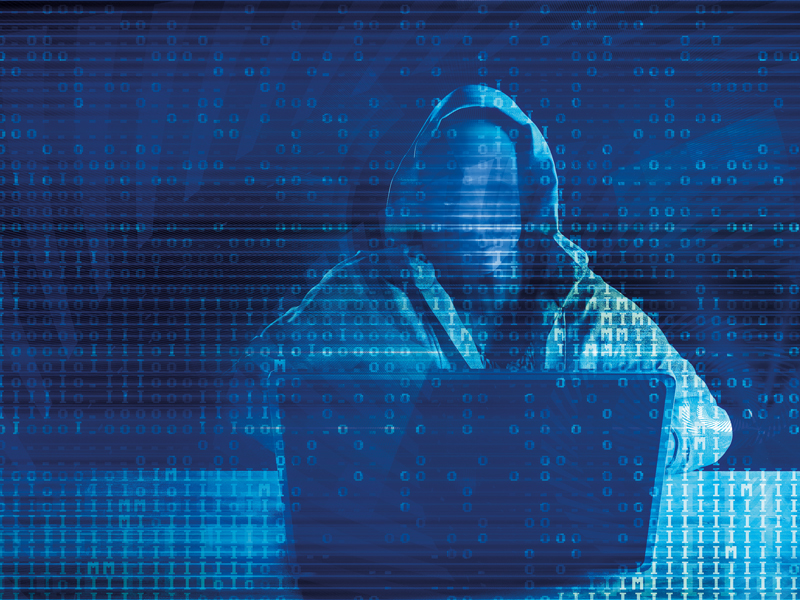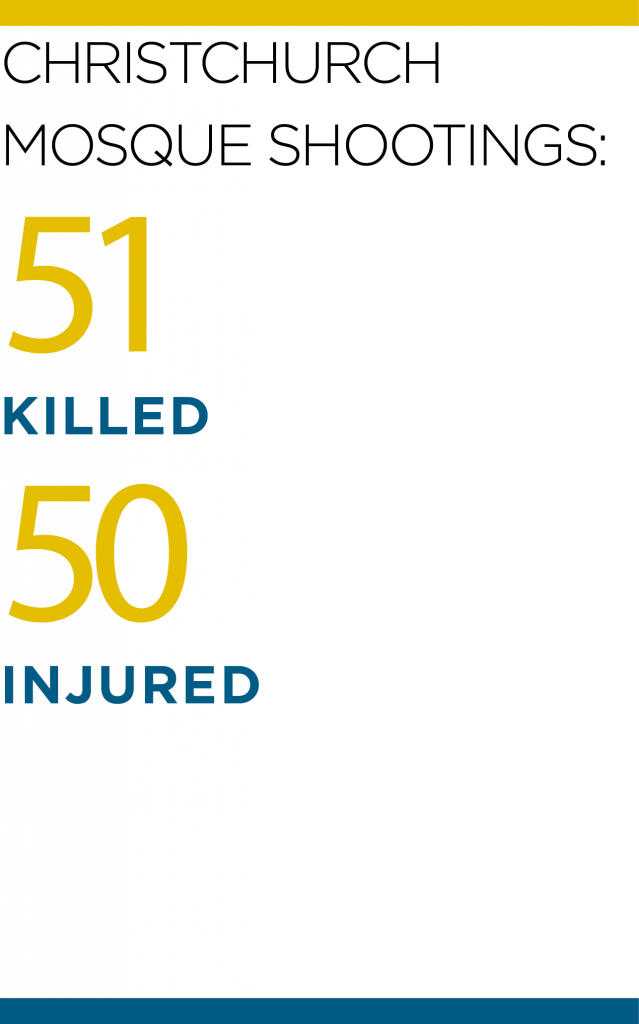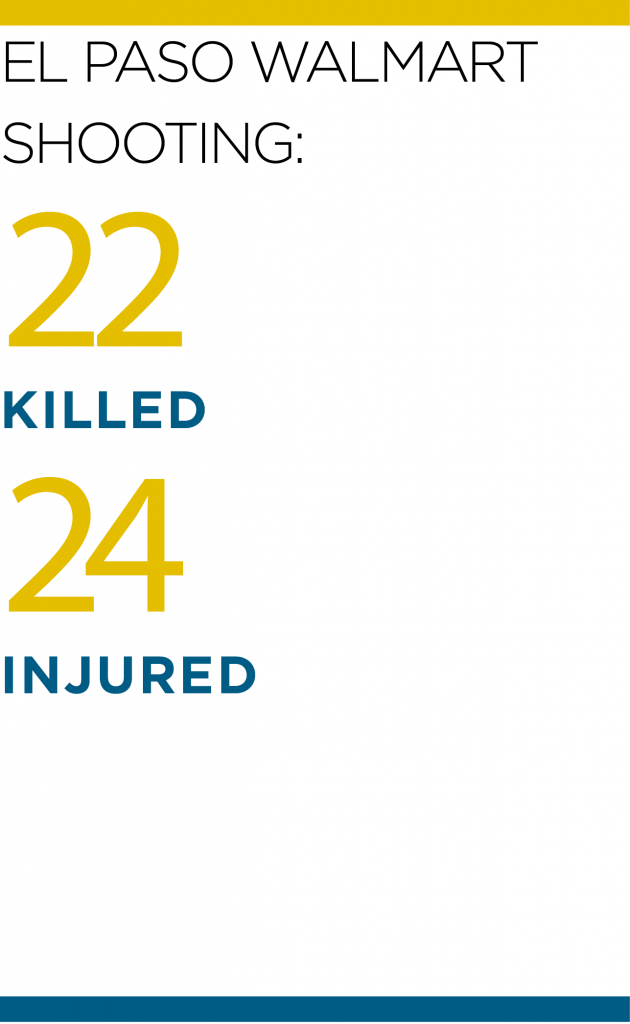A sorry site: 8chan gets the axe, raising questions about internet censorship
8chan, a controversial imageboard linked to numerous mass shootings, disappeared from the internet in August after being cut off by its network provider. While many lauded Cloudflare for its symbolic stand against violence, others raised concerns about the political nature of the decision and its potentially detrimental implications for free speech

Established in 2013 by US software developer Fredrick Brennan, 8chan has been linked to numerous acts of cyber violence in its six-year history, with the site being envisaged as a successor to popular imageboard 4chan
On August 5, Matthew Prince made one of the most significant regulatory decisions in the history of the internet: he removed the controversial imageboard 8chan, affecting more than one million daily users.
Prince is not a politician. He is not a regulator. Rather, he is the CEO of Cloudflare, a web infrastructure company that provides security services. Following a spate of violent and deadly incidents associated with 8chan, Prince chose to revoke Cloudflare’s service provision to the platform. This left the site vulnerable to cyberattacks, causing it to go down within a matter of hours.
Prince’s decision was not backed by any legal ruling; as an individual, he has no regulatory authority. By dint of his job title alone, he had the ability to close the site down – a power he exercised in the belief it would prevent mass violence. While some lauded the moralistic valour of his decision, others claimed he had overstepped the mark, employing a level of control typically reserved for governments. Regardless, Prince’s actions ignited a spirited debate over the nature of ownership and censorship in the age of the internet.
Within months of 8chan’s foundation, the site had become a cesspit of racism, sexism, harassment and other forms of criminality
A violent history
Pronounced ‘infinitychan’ by its users, 8chan has been linked to numerous acts of cyber violence in its six-year history. Established in 2013 by US software developer Fredrick Brennan, the site was envisaged as a successor to popular imageboard 4chan, which Brennan believed had lost sight of its founding mission of facilitating uninhibited discourse. “[On 8chan], anyone can say what they want and mean,” Brennan told the Daily Dot in 2014, adding that he viewed his site as “a free-speech-friendly 4chan alternative”.
8chan’s users certainly took advantage of their new-found freedom. Within months of its foundation, the site had become a cesspit of racism, sexism, harassment and other forms of criminality, in spite of its single global rule: “Do not post, request or link to any content that is illegal in the United States of America and do not create boards with the sole purpose of posting or spreading such content.”
In 2014, the site played host to Gamergate, an online harassment campaign aimed at developer Zoë Quinn, following the movement’s expulsion from rival 4chan. The attack was initiated following the release of the game Depression Quest, which drew on Quinn’s experiences of depression. Having received positive reviews from critics, Quinn was soon made the target of rape and death threats from 8chan users who were dissatisfied with what they considered to be a “political” intrusion into gamer culture. Said users later extended the harassment campaign to other female developers whose sociopolitical beliefs they disapproved of.

Reports are rife, too, of sexualised images of children and links to hardcore child pornography being posted to the site. These include photographs of toddlers and young children dressed in swimwear or revealing underwear, posing provocatively for the camera. More disturbing are the adult hands, reportedly visible in some images, guiding their subjects into position. Brennan has stated previously in interviews that he is aware of the presence of paedophilic content on 8chan but views it as a necessary side effect of upholding free speech.
Prior to this year, violence incited on 8chan tended to stay within the realms of cyberspace. That changed in March, however, when Brenton Harrison Tarrant allegedly used the platform to share an anti-immigrant manifesto and link to a Facebook Live stream. The latter allowed users to watch as mass shootings unfolded at two mosques in Christchurch, New Zealand, killing 51 people and injuring 50 others. The manifesto, which was widely shared online and quoted in the international press, detailed a hate-fuelled, alt-right ideology based on ethnic homogeneity. Tarrant has pleaded not guilty to all charges and a trial is scheduled for May 2020.
Repeat offender
In the aftermath of the Christchurch attacks, as social media platforms such as YouTube and Twitter struggled to prevent the horrifying video footage from circulating, a barrage of voices called for 8chan to be shut down. But action was not forthcoming, not least due to the difficulty of identifying who was responsible for – or capable of – shuttering the site. Brennan had ceded control of 8chan to an internet entrepreneur named Jim Watkins in January 2015, meaning he was no longer in a position to take action, although he did express his profound regrets to The Wall Street Journal
in the aftermath of the attack.

Watkins, a controversial figure who rarely engages with the press, was even more committed to 8chan’s free speech mission than Brennan had been and stated categorically that the site would remain live. This left Cloudflare, the provider and protector of 8chan’s secure network, in a difficult position. The company refused to revoke 8chan’s access to its services, citing a ‘content-neutral’ policy that prevented the nature of information on a given website from dictating whether or not Cloudflare would continue to serve it as a customer.
In the face of this impenetrable wall, the chorus calling for the closure of 8chan died down. But it was reignited in April, when John Earnest reportedly attempted to live-stream himself shooting worshippers at California’s Poway synagogue, and again in August, when Patrick Crusius was detained by authorities following a mass shooting in El Paso, Texas, that killed 22 Walmart shoppers and left 24 injured. Crusius allegedly posted a white nationalist manifesto on 8chan in the lead-up to the shooting, praising the actions of the Christchurch perpetrator. Earnest has since pleaded not guilty to all charges, while Crusius confessed to being the shooter as he surrendered to local authorities, according to the El Paso Police Department.
Following the Walmart shooting in August, it was clear that 8chan could not continue to operate, but there was no consensus on who should be responsible for closing the site down. “America’s ongoing problem with mass violence – and the difficulty we are having as a country in quelling it – is leading many to look to the online forums used by the perpetrators,” a spokesperson for the Electronic Frontier Foundation told The New Economy in a statement. “[But] as we’ve seen time and again, there’s little agreement about where to draw the line, much less who should draw it.”
Less than 24 hours after the El Paso shooting, Cloudflare took that momentous decision into its own hands. Prince published a statement announcing the company had served its notice to 8chan, terminating the imageboard’s network security provision and essentially condemning it to be shut down in a matter of hours. “The rationale is simple: they have proven themselves to be lawless and that lawlessness has caused multiple tragic deaths,” Prince wrote in a blog post. “Even if 8chan may not have violated the letter of the law in refusing to moderate their hate-filled community, they have created an environment that revels in violating its spirit.”

Clouded judgement
Cloudflare’s decision was met with a mixed reaction. Some lauded the firm for what they perceived to be a morally upright choice, one that would contribute to a reduction in mass violence. In their eyes, pulling the plug on 8chan meant depriving an extremist community of the forum via which members were able to share their destructive ideas and radicalise others. “Shut the site down,” Brennan begged in an interview with The New York Times in August. “It’s not doing the world any good.”
In reality, though, the matter is more complex. Cloudflare is a publicly traded company that exercised the kind of power usually reserved for government regulators. In closing the site down, the network provider stimulated a complex discussion about the nature of censorship, responsibility and control in the Wild-West-like corner of the internet in which 8chan dwelled.
The responsibility of deciding what is classed legal or illegal should lie with governments, not businesses
When justifying the decision to terminate its relationship with 8chan, Cloudflare drew on the hazy concept of the rule of law. However, Prince did not clarify exactly what he meant by this term, instead writing: “While [the rule of law] has been articulated as a framework for how governments ensure their legitimacy, we have used it as a touchstone when we think about our own policies.” This lack of clarity led to criticism for two reasons: first, Cloudflare operates internationally and, as such, is not bound by a single constitution or set of laws, but rather the laws of each nation in which it does business. Second, as each nation has its own set of laws to govern what is and isn’t acceptable in online spaces, there is no such thing as a universal rule of law.
What’s more, even if there was, the responsibility of deciding what is classed legal or illegal should lie with governments, not businesses. “There is no global consensus yet created by the international community around key terms such as ‘terrorist content’,” Tech Against Terrorism researchers Jacob Berntsson and Flora Deverell told The New Economy. “This means that rather than democratically accountable governments, who should be the ones who decide what does and does not constitute [online] terrorism, the onus of adjudication is often outsourced to tech companies.”
Prince was evidently well aware that his company would be denounced for overstepping the mark when it closed down 8chan, as he pre-empted this criticism in his statement: “While we’ve been successful as a company, that does not give us the political legitimacy to make determinations on what content is good and bad. Nor should it.” But government action on internet regulation, particularly with regards to the ‘alt-tech’ online space 8chan occupies, has not come to fruition, despite the clear need. In the US, no law exists to sanction hate speech, as it is protected under the First Amendment. Other liberal democracies have limited legislation, but in many places it is rarely invoked due to disagreements over definition or challenges relating to burden of proof in online forums. Prince clearly felt that the criticism he would receive for Cloudflare’s decision was an acceptable trade-off for the harm the site could cause in the absence of government regulation.
User error
Cloudflare’s decision was not only criticised for being problematic from a regulatory perspective: it was also labelled ineffective, something Prince acknowledged in his original statement. “Unfortunately, the action we take today won’t fix hate online,” he wrote. “It will almost certainly not even remove 8chan from the internet.” The network provider was aware there would be other, less scrupulous firms that would be willing to associate themselves with 8chan in exchange for the hefty profit boost such a relationship would no doubt provide.
The mass shootings associated with 8chan are evidence of what can happen when online violence spills over into real life
Even if the platform were unable to find a security partner immediately, 8chan, or some iteration of it, would have likely sprung back up eventually. In the meantime, its users have had no trouble finding new homes online: some have returned to 4chan, while others have migrated to platforms such as Gab, a social media site that is widely described as a haven for white supremacists and the alt-right. Like 8chan, Gab was closed down briefly in October 2018 after Robert Gregory Bowers allegedly posted a message detailing his plans to carry out a mass shooting at the Tree of Life Synagogue in Pittsburgh. The site has since reappeared on the dark web.
“[The resurgence of 8chan and Gab] demonstrates two things,” Berntsson and Deverell said. “First, it calls into question how effective content removal really is; second, it highlights the need to carefully and holistically think through how situations like these should be dealt with in the future.” The sites’ reappearance makes a strong case for government regulation, which, if implemented effectively, would allow all platforms with harmful content to be removed systematically, as opposed to the individualistic method firms such as Cloudflare are currently restricted to.

Any holistic approach must not be limited to regulating the harmful content that appears on sites like 8chan, though, and should instead delve into the reasons why such extremities and violence have become a prominent facet of our society. “While removing 8chan from our network takes heat off of us, it does nothing to address why hateful sites fester online,” Prince wrote. “It does nothing to address why mass shootings occur. It does nothing to address why portions of the population feel so disenchanted they turn to hate.”
On these sites, the users are the ones who create the content, so we need to ask why extremism breeds in these spaces and what has led users to feel so disempowered and desperate within the offline world that they are susceptible to radicalisation. The mass shootings associated with 8chan are evidence of what can happen when online violence spills over into real life; as a society, we need to be taking action far earlier than we currently are to ensure such scarring events do not continue to take place.
Rebooting the system
It is clear that regulation is needed, but progress is slow for two key reasons: first, groups such as the Electronic Frontier Foundation are concerned about the implications for free speech. “The same arguments used to silence hateful speech are often used to silence marginalised speakers with important things to say,” a spokesperson for the non-profit group told The New Economy. Second, the conversation surrounding regulation has become extremely politicised, particularly in the UK, as divisive events such as Brexit have polarised society and hindered the sort of cross-party consensus that is typically required in situations like this.
Owing to both of these factors, many believe an international approach to regulation would prove more fruitful than one defined by disparate government guidelines. Creating a universal rule of law, for example, would make each nation accountable and ensure that subsequent governments could not alter legislation according to their political agendas. It would also prevent regulations from being used as a tool for censorship by repressive actors.
While regulation is unquestionably the first step to preventing continued violence on platforms such as 8chan, for many countries, it remains a distant goal. Any further delays will make acts of violence like those found in El Paso and Christchurch a likely recurrence. It also means the onus for action remains on firms such as Cloudflare – a burden that no organisation should have to bear on its own.













